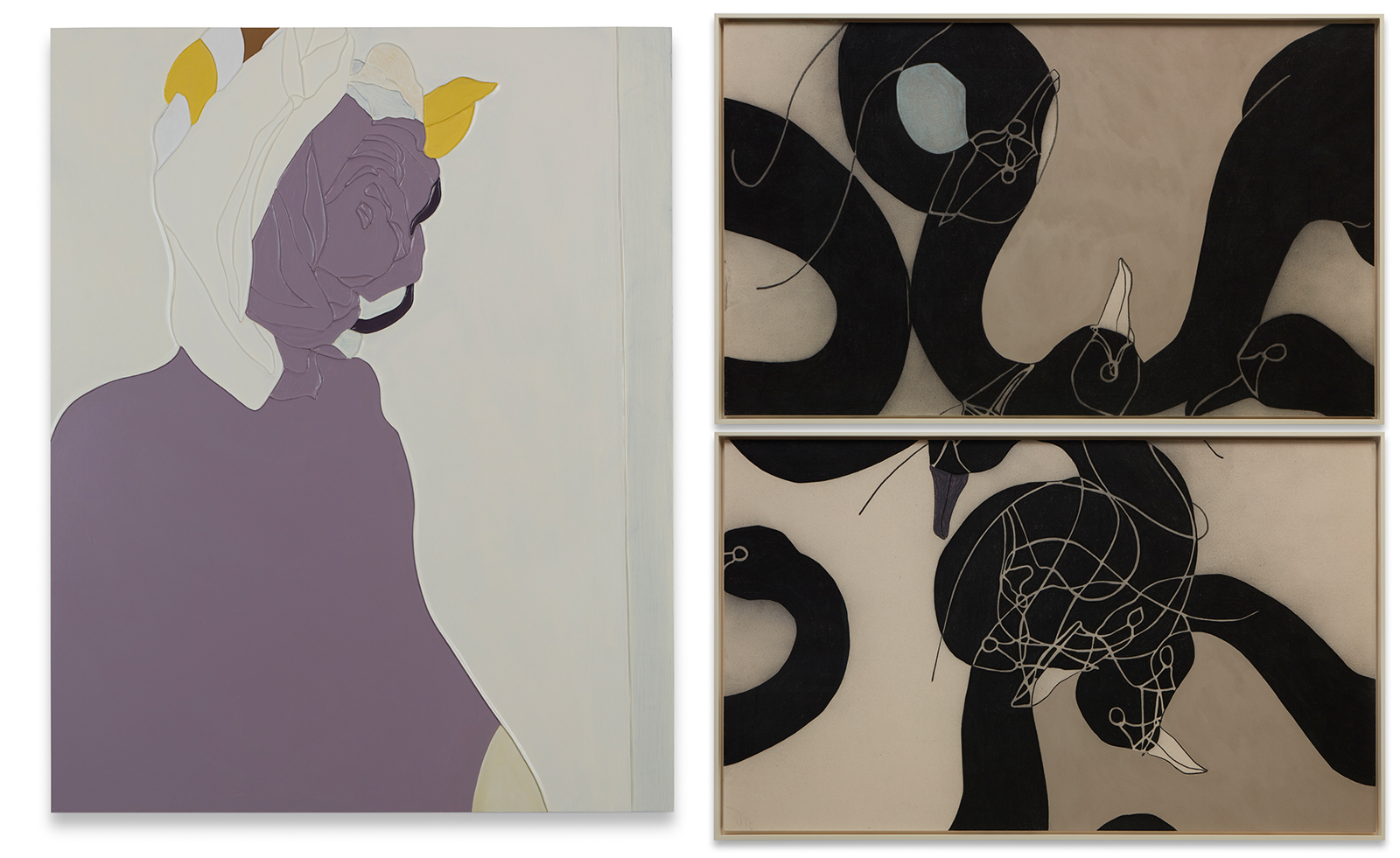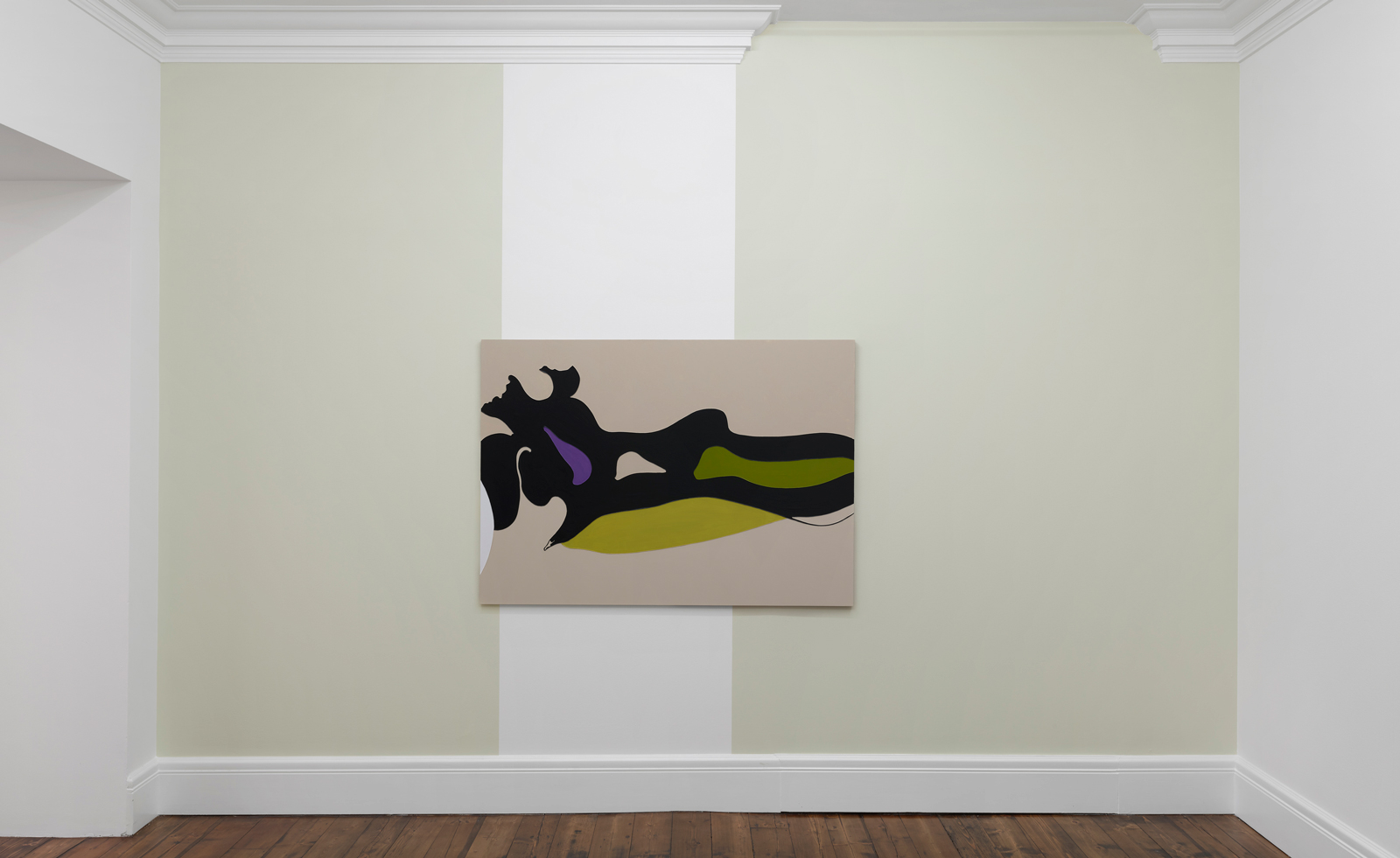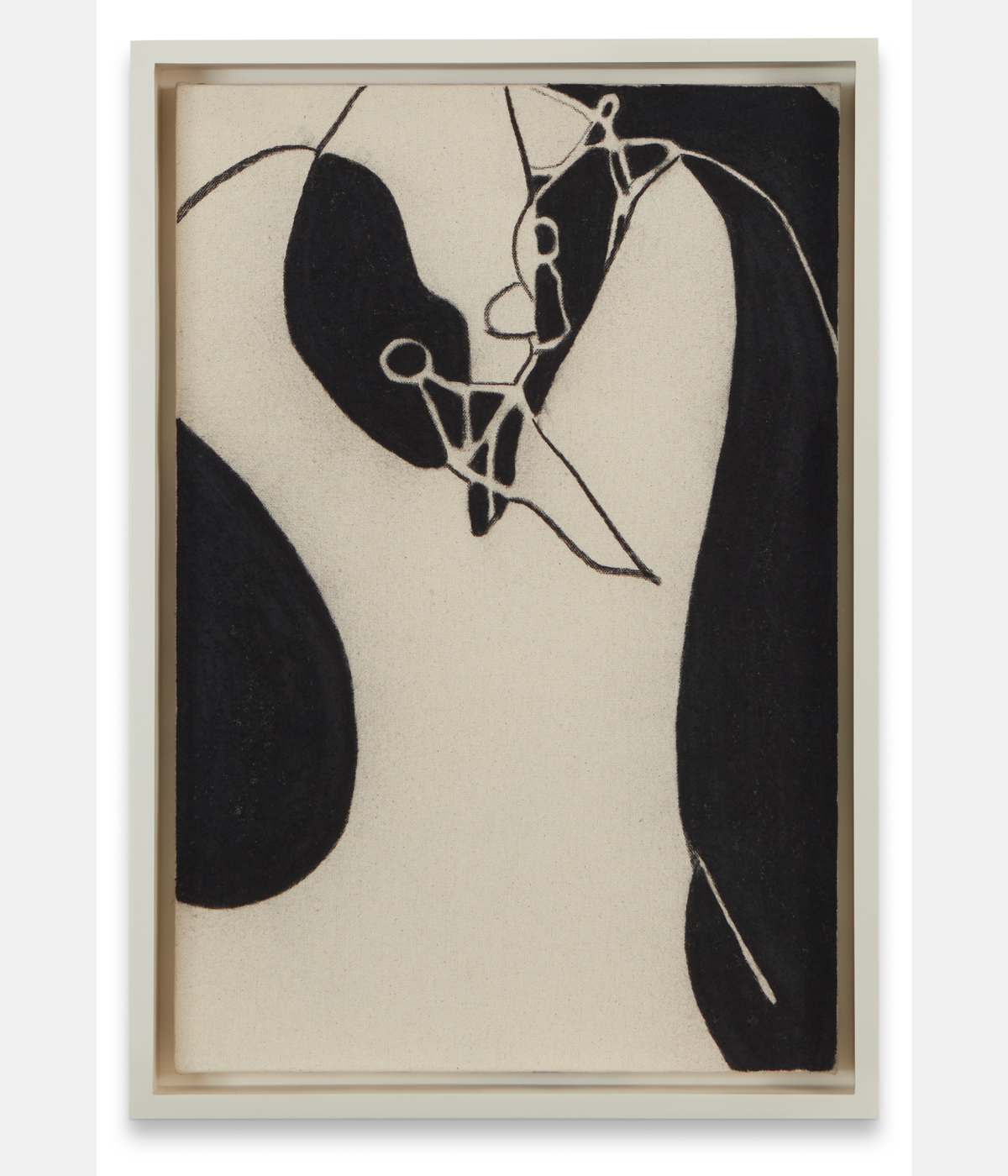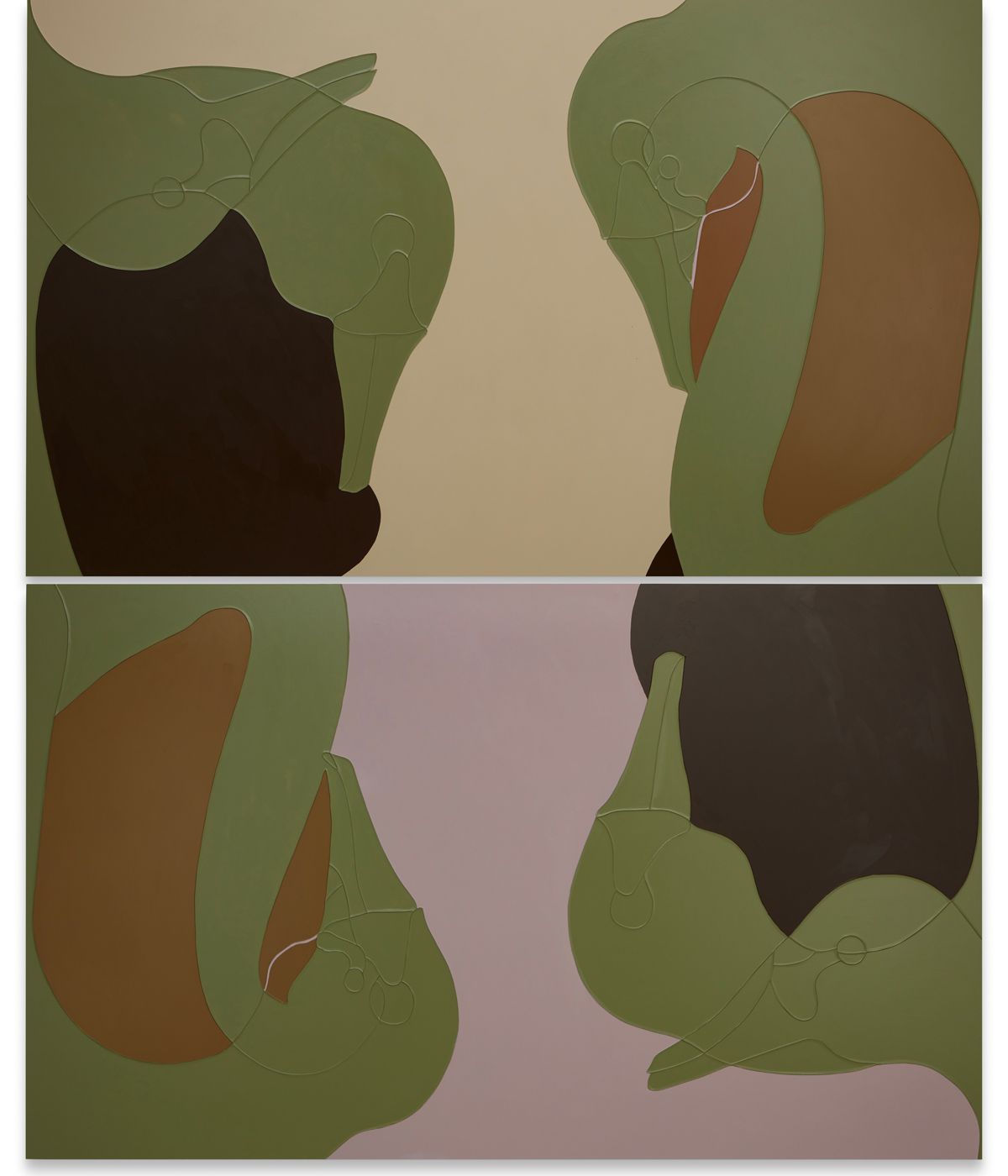
Gary Hume avoids rigid meanings. His process involves an ongoing attempt to lose the subject, though some of his previous paintings have taken real, emotionally charged imagery as their starting point. His 2017 show ‘Mum’, for example, included a closely cropped painting depicting the buttons on his mother’s cardigan while she was suffering from dementia. His ‘Destroyed School’ series was informed by images of war-torn educational spaces. Hume’s at times traumatic source materials take on a peaceful state within his paintings, sometimes conveying a sense of innocence or stillness. They drift freely between abstraction and figuration; meaning and feeling.
'I do want them to be tender. Looking is generally a calm activity. You don’t have to flee in front of a painting,' he tells me, when we meet at his east London studio ahead of his solo exhibition, ‘Mirrors and Other Creatures’, opening at Sprüth Magers in London (until 19 October 2024). Hume was not interested in finding a fixed narrative for this body of work. Instead, he tells me, he was looking for the moment at which none of his decisions and intentions were apparent. 'When I’m making them, it’s very active. When they become accepting of stillness, it’s such a relief. All the things that have driven me mad, or that were interesting me, are now invisible.'
Gary Hume, ‘Mirrors and Other Creatures’ at Sprüth Magers

The title of the exhibition connects with the feeling we may have when looking in the mirror; a realisation that there is a gap between the reflection and real self. He sees this feeling as akin to the act of observing a painting. In these moments, we might become more aware of our own existence. Hume also draws parallels with this sensation and the experience of being in nature, in which our presence becomes clearer. These new works are teeming with animal or organic icons, from swans to flowers and blueberries.
'If you sit and watch nature, you become more apparent yourself,' he tells Wallpaper*. 'It’s about being human. If you’re just watching, not exploiting or looking for nature’s use, you start to feel this strange existence and emptiness at the same time.' While the individual images within the work do not hold a meaning for Hume, their combined allusion to the natural world reflects these existential thoughts.

Some have come from unexpected places. He first began working with swans after dreaming of a painting that he was struggling to finish. ‘If in doubt, put a swan on it,’ was the dream’s message. Now many of his works feature their long sweeping necks, creating powerful contours that snake through the compositions. ‘This is nothing I willed. Eight months after the dream, I’m still painting fucking swans,’ he laughs. ‘Maybe it was the beginning of this idea to have no intention. I have no interest in swans. But of course, I love those curves.’
Autumn is a busy time for Hume. He also has a solo show of prints at Lindsey Ingram and a collection of paintings from the mid-1990s to 2000s at Hazlitt Holland, both in London. Alongside this, he is collaborating with Burberry on their S/S 2025 show. The brand’s creative director Daniel Lee came across some of Hume’s early 1990s tarpaulin pieces, which have acted as the starting point for their collaboration. The artist notes that he and Lee have a similar interest in material and its joining points. Many of his works feature sharp raised lines that segregate different sections of colour. They are formed using masking tape while working, creating the visual effect of a cut pattern.

Hume retains a fascination with his materials, and with the act of painting. This recent body of work reflects an ongoing need to keep surprising himself. ‘It’s so interesting being a painter,’ he tells me. ‘You’re dealing with the same problem everyone has had since the cave. You’ve got a plane, and edges, and you’ve got to put something on that plane in relation to the edges that you can bear to look at, that hasn’t been made by someone else already. That goes on and on. It’s brilliant!’
Gary Hume, ‘Mirrors and other creatures ’at Sprüth Magers, London until 19 October 2024







